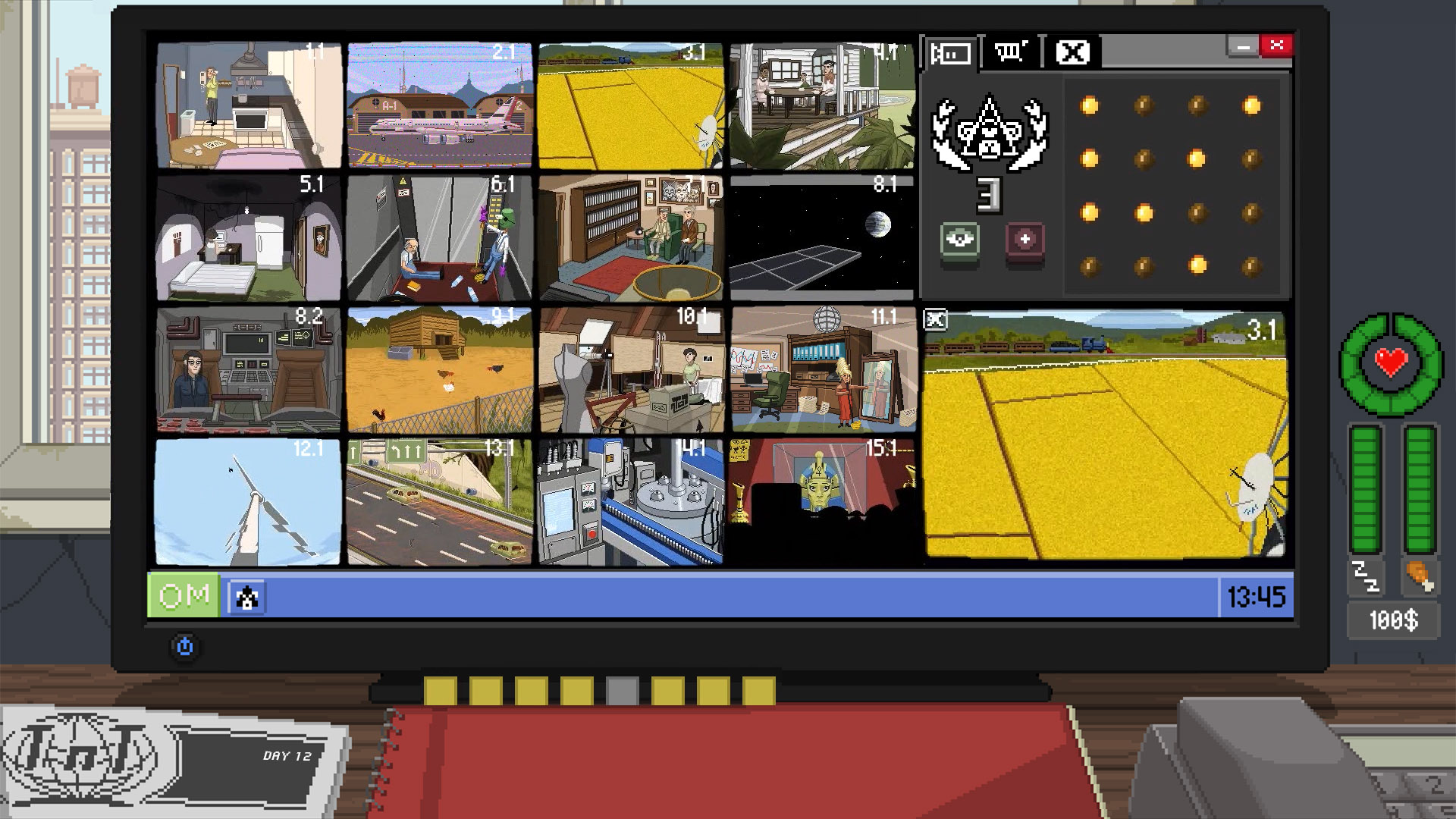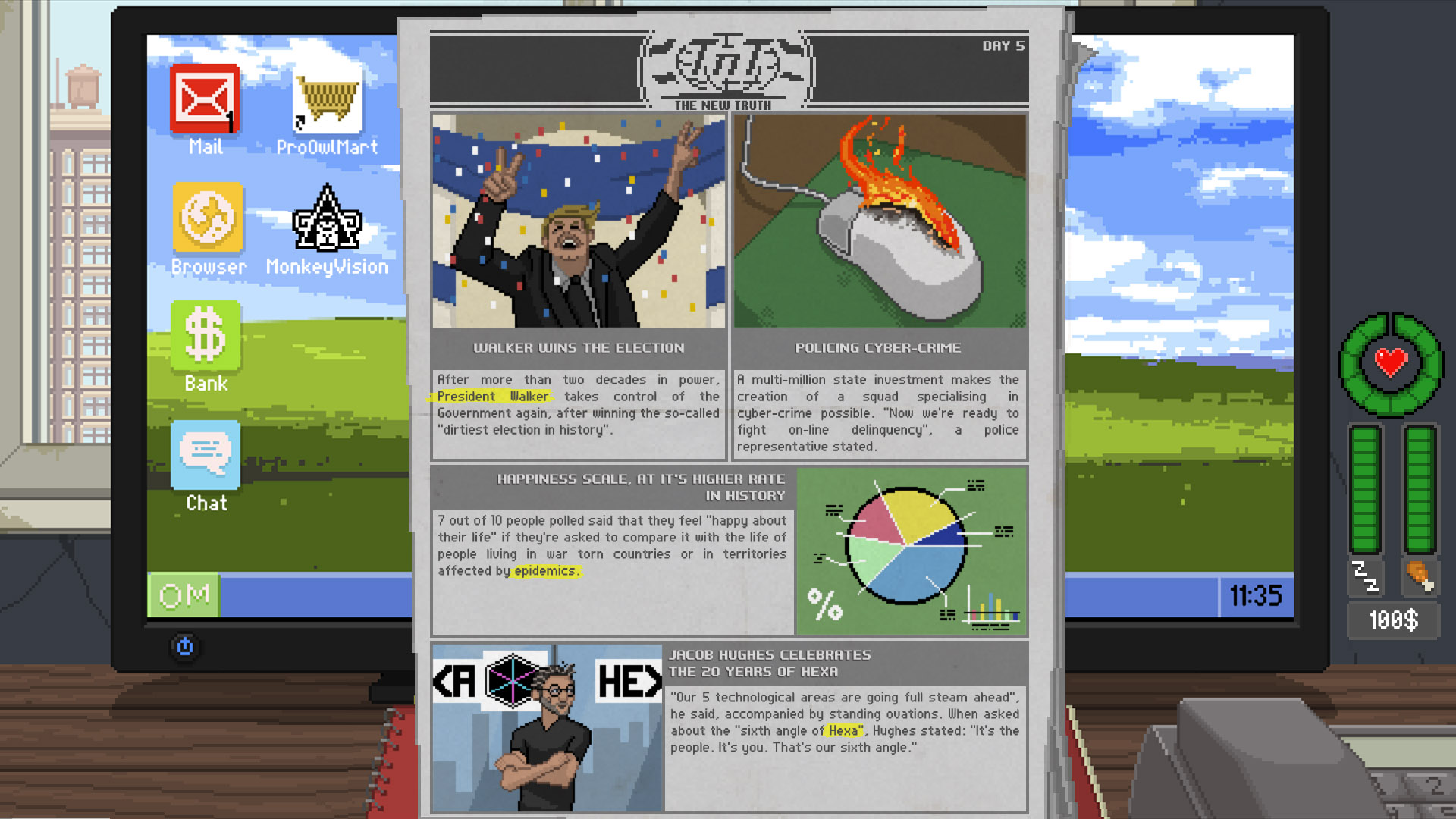Spying in video games is a fantastic example of the negotiation of power between the player and game. Compare 1992’s Night Trap to Five Nights At Freddy’s in terms of their use of cameras. One uses the extra eyes to activate traps in a house from a remote location. The other provides no advantage beyond knowledge to meekly fend off animatronics. However, games like Papers, Please, Orwell, and Beholder take place in authoritarian governments in which the player’s power over their fellow citizens is still at the mercy of the almighty state.
Do Not Feed The Monkeys mixes the moral grayness and relatively of the latter examples and the spying systems of the former with a more upbeat and humorous atmosphere.
Interaction With The Primates Is Strictly Forbidden
The player’s job is simply to watch people in their “native habitats” through cages, or hacked surveillance cameras and webcams. Do not contact them. Don’t interact with them. Do not extort them. And within those instructions belie suggestions. Depending on the player’s decisions and acts the game can advance in ways myriad that are unexpected and goofy. As the player secures their spot in the “Primate Observation Club” they must balance their expanding roster of cages, real-life needs, and money as they witness their subjects’ daily lives and browse various online outlets.
Voyeur Simulation
Fictiorama Studios, who previously created Dead Synchronicity, emphasize the consequences of both action and inaction. Another example of this is is the silence option in Telltale Games. A lack of a response is still very much a response. In Do Not Feed The Monkeys this implies both a weight to violating the Observation Club’s directives and player culpable to events that they should not even be aware of. Do Not Feed The Monkeys is appealing in its variability and sense tone, leveraging the game’s conceit of amateur attempts at omniscience to explore a world.
Be wary, when the game launches in 2018, it will come with “uncensored pixelated violence and pixelated nudity.”





